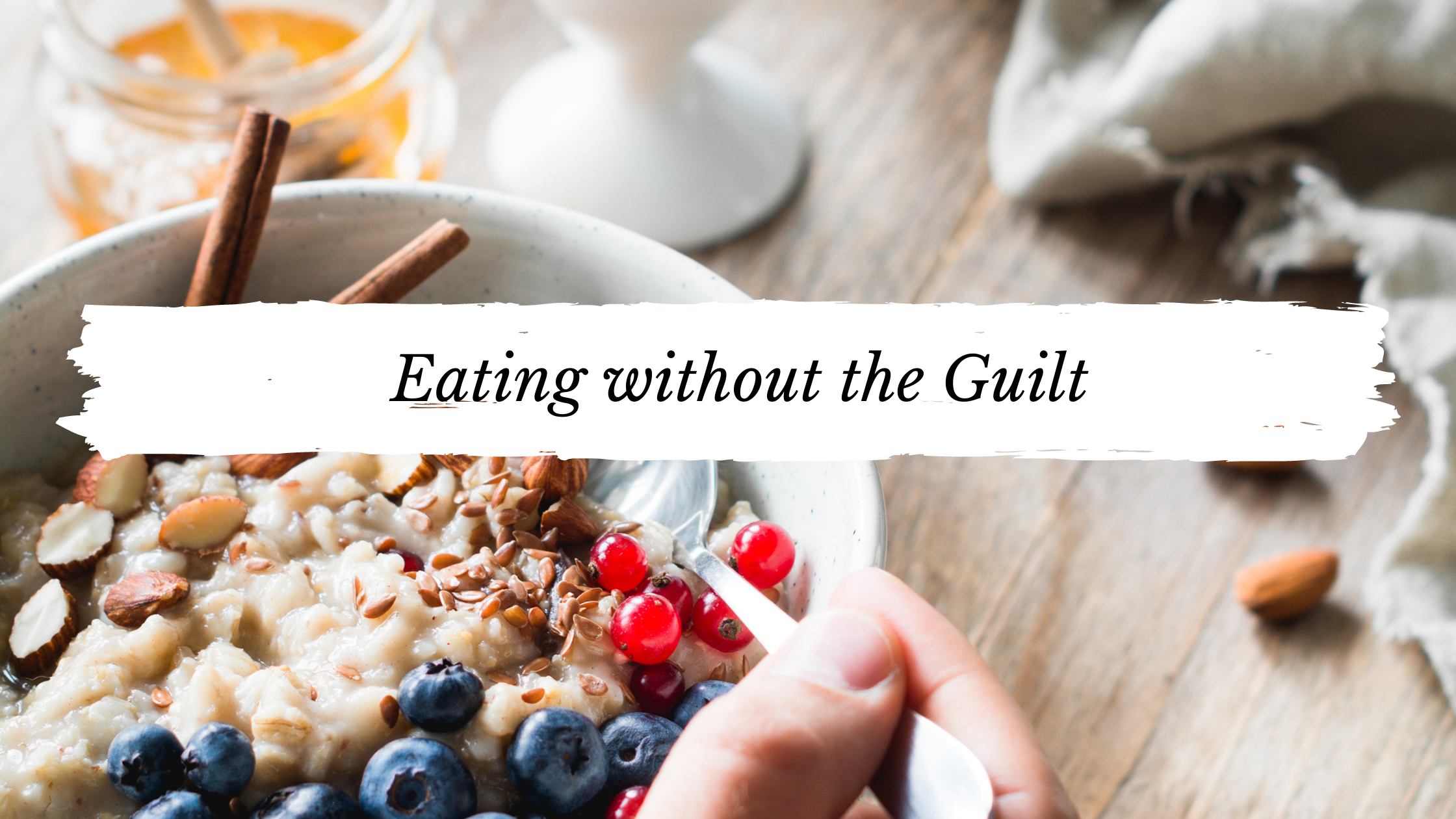
01 Dec Eating Without the Guilt
Imagine this.
It’s book club night.
Your host has homemade gooey, fudgy brownies – made exactly the way you love them.
You tell yourself; I can’t eat a brownie. Then, after they are passed around for the third time, you think: “I’ll just have half.”
The next thing you know, you’ve eaten 6 halves and are thinking “I’m so gross, how could I eat so many brownies? I hope no one noticed. They’ll think I’m out of control. Why don’t I have willpower?”
Of course, it’s not always brownies. It could be cheese, chips, bread, cookies or chocolate. Unfortunately, with our vast diet culture, there are so many foods that we feel guilty about eating.
This leads you down the path of guilt and shame – and you start to feel bad about yourself – rather than the choices that you made.
The diet industry has led you to believe, that if you eat “good” foods, you will achieve your ideal weight and if you eat “bad” foods, you will gain weight. You might also believe if you can’t achieve your ideal weight, then you lack willpower and or you aren’t trying hard enough.
However, the reason you can’t resist forbidden foods, isn’t related to willpower. It’s actually how your brain is wired and the chemicals in processed foods. In addition, the more you think about a food as “bad”, the more you want to eat it because it’s restricted!
So, what can you do to release your guilt and shame about food?
Determine the source
When the thought comes up that a particular food is “bad”, stop and ask yourself where this idea of “bad” or “good” food came from. Is it because you don’t feel well after you eat it or is it much deeper than that?
If a particular food makes you feel bloated, uncomfortable, or sluggish, perhaps it’s not the right food for you. Make a decision based upon how you feel after you eat a specific food. If you feel euphoric initially and then exhausted an hour later, perhaps that food isn’t suitable for you. Eat foods that make you feel good and nourish your body.
Change your thoughts
Another important step is to change your thoughts. If you think “I can’t eat that” you immediately feel restricted – which leads to guilt and shame. If you change your thought to: “I choose not to eat that”, the restriction disappears, along with your guilt and shame and obsession about that food.
If you choose to eat a food you think is “bad”, forgive yourself. Eating gooey brownies one night doesn’t mean you are a bad person and you’re not going to gain 10 pounds overnight. Accept your decision and move on. Think about the choice you will make the next time. Every time you eat, you have a choice. If the majority of your choices support your long-term health goals, there is no reason to feel guilt or shame.
Eat Mindfully
When you are eating, actually focus on the process and savor what you are eating. Instead of mindlessly eating your lunch while browsing your phone or checking email, take some time to sit and enjoy your food. Taste each bite, chew it slowly and be mindful of the experience. This will also help you recognize when you’ve had enough, without overeating.
As you start to release your feelings of guilt and shame around food, you may notice you are more in tune with your body. You are aware of your hunger cues and eating more intuitively. You are choosing foods in response to what your body needs. Your body is perfect and it is constantly sending you messages. And, who knows, maybe your dark chocolate craving is your body telling you that you are low on magnesium!
Do you notice when you feel hungry?
Do you struggle to tune into your body’s signals?
For a simple solution to help you eat more mindfully, check out the Effortless 3-Day Reset Program, where we provide the food and the coaching – and all you need to do is tune into your body and enjoy your food!




Sorry, the comment form is closed at this time.